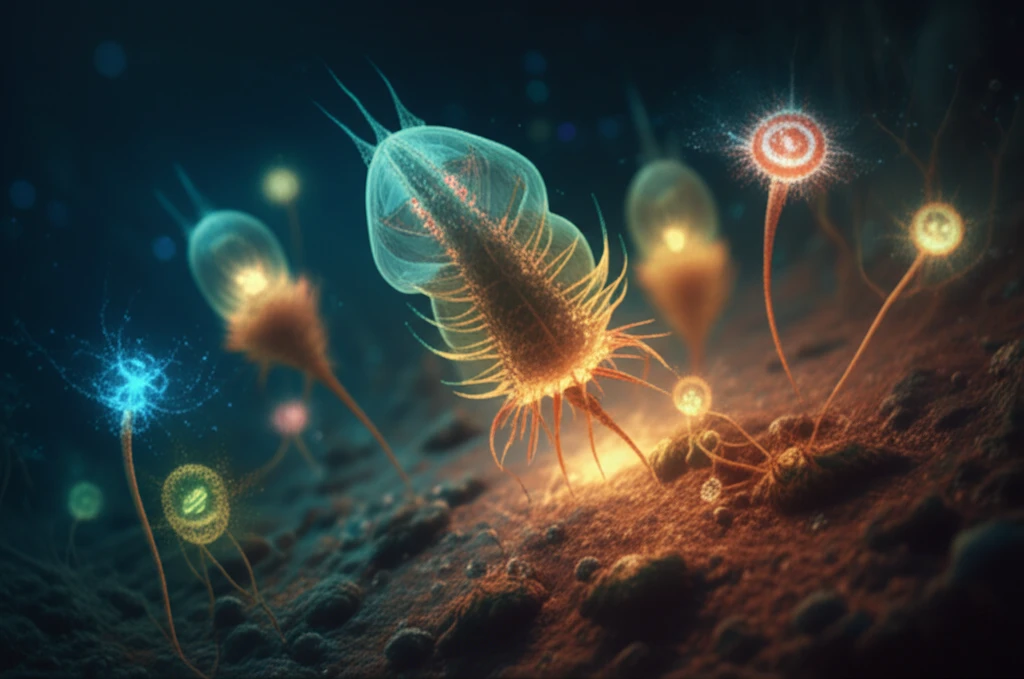
Hidden Powers of the Sea: Unlocking Dinoflagellate Potential
"Could these tiny marine organisms hold the key to new medicines and a healthier future?"
Dinoflagellates, a diverse group of microalgae with around 2000 species, are pivotal in marine ecosystems. Among them, benthic dinoflagellates, residing at the bottom of the sea, have garnered interest. This is primarily due to their role as primary producers and their potential to produce harmful toxins that can impact aquaculture and even human health.
These fascinating organisms possess unique structures and produce bioactive secondary metabolites, leading researchers to explore their potential pharmaceutical applications. While some dinoflagellates produce toxins, these same compounds, in controlled settings, could offer valuable tools for drug discovery.
Now, a new study focuses on benthic dinoflagellates collected from Jeju Island, Korea, assessing their growth potential and screening them for antioxidant, anti-inflammatory, and anticancer properties. This research marks the first exploration of these specific dinoflagellates in this region, paving the way for potential pharmacological breakthroughs.
What are Benthic Dinoflagellates and Why Should We Care?

Benthic dinoflagellates are single-celled organisms thriving in marine environments, particularly in tropical and subtropical regions. They're commonly found attached to seaweed, sand, or other surfaces on the seafloor. Unlike their free-floating relatives, benthic species have a close relationship with the seabed environment.
- Bioactive Compounds: They produce unique chemical compounds with a range of biological activities.
- Drug Discovery Potential: These compounds could be developed into new medicines or therapies.
- Ecological Importance: They play a vital role in marine food webs.
- Harmful Algal Blooms: Some species can cause harmful algal blooms, impacting marine life and human health.
The Future of Dinoflagellate Research
This study from Jeju Island shines a light on the untapped potential of benthic dinoflagellates. By identifying strains with significant antioxidant, anti-inflammatory, and anticancer properties, the research opens doors for further investigation into these natural compounds.
While challenges remain in scaling up dinoflagellate cultures and isolating specific bioactive molecules, the findings suggest a promising avenue for drug discovery and potential health applications.
Future research should focus on optimizing culture conditions, exploring the effects of environmental factors on growth and bioactivity, and isolating and characterizing the specific compounds responsible for the observed health benefits. The ocean's microscopic inhabitants may hold secrets to a healthier future for us all.
